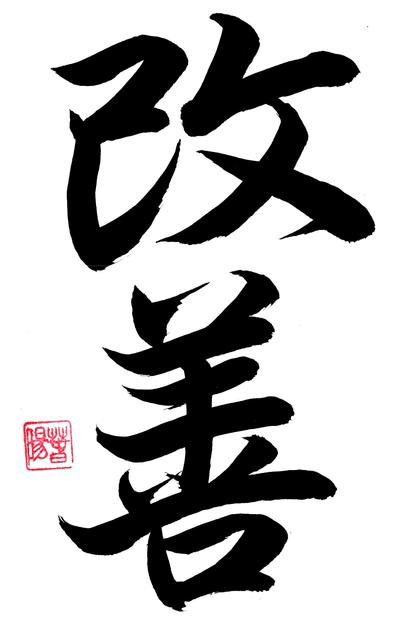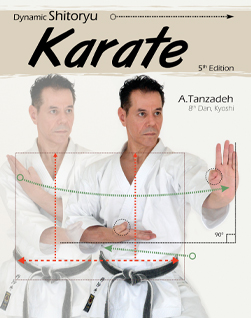“Kaizen 改善” In the Japanese language the word Kaizen is derived from two Kanji, the first ‘Kai’ 改, meaning ‘change,’ and the second ‘zen’ 善, meaning ‘good. ‘ Hence the literal meaning of the word being ‘change for the better’ i.e. improvement.
In the context of Karate, Japanese Kaizen embodies a philosophy of continuous improvement in martial arts practice. Just as in other areas of life, the principles of Kaizen are applied to refine techniques, enhance performance, and deepen understanding.
Within Karate, Kaizen involves:
1. Technique Refinement: Practitioners continually strive to refine their techniques, focusing on precision, speed, and effectiveness. This involves breaking down movements, analyzing them, and making incremental adjustments to improve execution.
2. Physical Conditioning: Kaizen encourages constant improvement in physical fitness and conditioning. Practitioners engage in regular training to increase strength, flexibility, and endurance, allowing them to perform techniques with greater efficiency and power.
3. Mental Discipline: Mental aspects of Karate, such as focus, concentration, and discipline, are also subject to continuous improvement. Practitioners cultivate a mindset of resilience, perseverance, and mindfulness, enhancing their ability to perform under pressure and adapt to changing circumstances.
4. Exploration and Innovation: Kaizen in Karate involves a spirit of exploration and innovation. Practitioners are encouraged to experiment with different approaches, techniques, and strategies, seeking new insights and opportunities for improvement.
5. Feedback and Reflection: Feedback and self-reflection are integral to the process of Kaizen in Karate. Practitioners seek feedback from instructors and peers, as well as critically evaluate their own performance, identifying areas for growth and development.
Ultimately, the concept of Kaizen in Karate is about striving for continuous improvement in all aspects of training and practice, with the goal of realizing one’s full potential as a martial artist. Through dedication, perseverance, and a commitment to excellence, practitioners embody the spirit of Kaizen both on and off the training floor.






